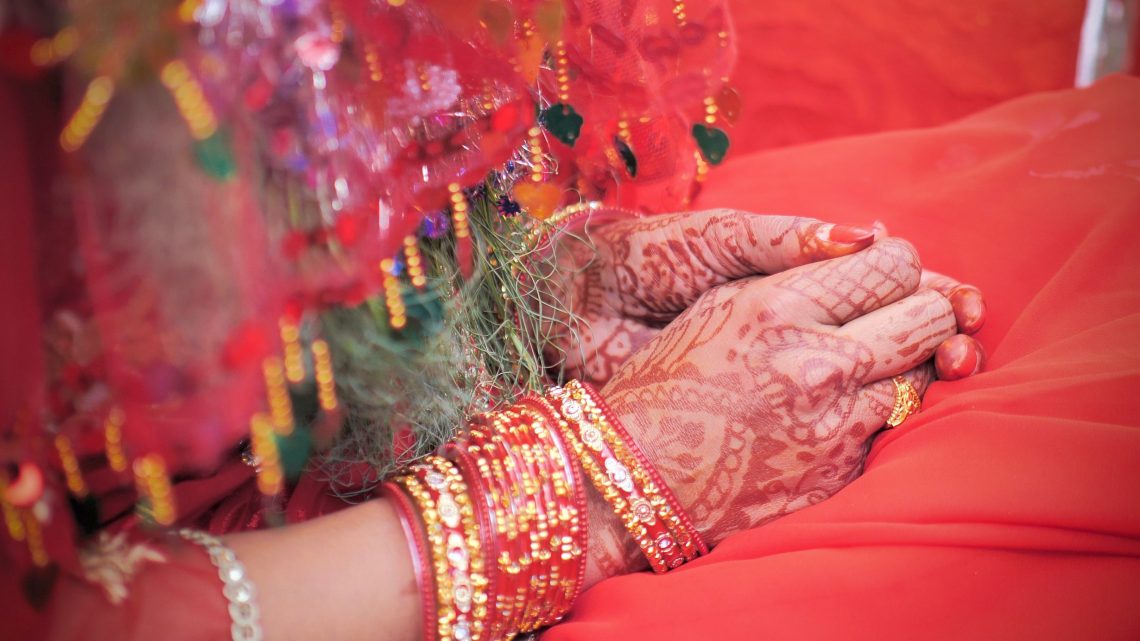
India’s Lockdown Has Caused an Explosion of Child Marriages
July 10, 2020This article originally appeared on VICE India
Last month, a 16-year-old girl called authorities in the South Indian state of Tamil Nadu and filed a complaint against her parents. She claimed she was being forced to marry a 39-year-old man and asked for help. Social workers with the government intervened, and the girl is now under the care and protection of the state.
It later emerged that the girl's parents had lost their jobs during the pandemic, and had received an offer from the man who said he'd take care of all wedding costs. He did not even demand dowry—a system by which the groom receives payment from the bride’s family to ensure her well-being.
“It was an attractive offer, and the parents agreed,” Chezhian Ramu, a social worker and child rights activist in Tiruvannamalai, told VICE News. Ramu is one of the social workers now caring for the couple's daughter.
The district of Tiruvannamalaihas now claims the second-highest number of child marriage in the state of Tamil Nadu, which saw 168 such cases in 2019. In 2017, the state reported 1636 child marriages, which was the last time official data was made available.
A 2019 report by the United Nations International Children's Fund (UNICEF) states that one in three of the world’s child brides live in India. Of the country’s 223 million child brides, 102 million were married before turning 15.
Recently India has seen a spike in child marriages, and particularly in Tiruvannamalai, which logged a total of 40 in the month of June.
“This is the highest we have ever seen,” said Christina Dorthy, the district’s social welfare officer, who pointed out that in the period between April 2017 and May 2020 the monthly number never rose above 27 per month, with the lowest at just eight cases in a month. “COVID-19 has provided a perfect breeding ground for this social evil to flourish,” she said.
Across India, various state officials and activists have reported a spike in child marriages. In the western state of Maharashtra, the Women and Child Development department reportedly intervened in as many as 80 cases of girls forced into marriage during March-June 2020. Officials in the state told The Indian Express that girls as young as 13 were married off to men who were, in some cases, double their age.
The most recent government data on child marriage comes from the National Family Health Survey (NFHS) in 2016, which found that 27 percent of Indian women marry before the legal age of 18, while 20 percent of men were married before the legal age of 21 years.
Legislation to curb the practice has been described as "toothless" and “limited” in its effectiveness. A State of World Population 2020 report by the United Nations Population Fund found that although countries in South Asia have recently seen a 50 percent decline in child marriage, the region still accounts for the most cases globally.
Despite the ubiquity of child marriage in India, authorities say recent numbers have been rising, and blame COVID-19 and its subsequent lockdown for the spike. An increase in joblessness is one of the major contributing factors, as highlighted in case involving the aforementioned 16-year-old.
“Migrants who were employed in small industries are now back in their hometowns without jobs,” said Ghasiram Panda, the national manager of ‘Ending Child Marriage’ programme by the NGO ActionAid India, supported by the UNICEF.
In the eastern state of West Bengal, increased rates of child marriages were reported in June, where communities are trying to deal with the lockdown while rebuilding after the region was pummeled by tropical cyclone Amphan in May.
Additionally, the closure of schools and community centres has made children, and particularly young girls, more vulnerable. In the South Indian state of Telangana, district officials reportedly intervened in over 200 cases of child marriage over the past few months.
“In fact, what we are witnessing right now is only the tip of the iceberg,” said Ramu. The story of the 16-year-old in Tiruvannamalai is a rare example, he cautioned. “There might be 10 times more incidents that we're not aware of because children’s mobility and communication are restricted. They will not be able to confide in their teachers or friends, which used to happen before.”
Families are also exploiting lockdown restrictions to conduct low-cost ceremonies, without the need for wedding halls or large gatherings. “It’s easier for families to do this in absolute secrecy within their own homes,” said Dorthy. She recently intervened in a child marriage ceremony in Tiruvannamalai after being tipped off by a villager who attended the wedding at the family’s home. “The family denied it happened, as did most of the attendees, but we found proof in pictures of the wedding,” she said.
Childline, a Government of India-run helpline, reportedly received 37 calls on child marriage in the South Indian state of Karnataka within two weeks starting March 25—when the lockdown came into effect. Fr Antony Sebastian, the chairperson of Karnataka State Commission for Protection of Child Rights, called this spike “abnormal” and “alarming for such a short period of time.”
At the moment, there is no coordinated national effort to track child marriages during the pandemic. Various NGOs and district government officials are gathering data independently, and those too, they say, may not represent the complete picture.
The ActionAid-UNICEF project has been tracking cases of child marriage since March 23. They reported 183 cases in Odisha, 138 in West Bengal, 56 in Jharkhand, 25 in Bihar and 16 cases in Rajasthan, among others. Panda told VICE News that there is a dire need to build comparative data, which may help organisations and district officials understand the true scale and trend of the current crisis.
Many Child Marriage Prohibition Officers are occupied with COVID-19 management. “The pandemic has pushed the issue of child marriage on the back foot in the department’s list of work priorities,” said Varsha Rani Tirkey, a district coordinator with ActionAid Association in Chatra district, Jharkhand.
In districts like Chatra, where rates of illiteracy and school dropout are rampant, officials are facing more resistance from society than before. Tirkey told VICE News that during one of her recent interventions, villagers questioned officials about the safety of the girls if they weren’t married and demanded compensation for wedding costs.
Dorthy added that the risk of COVID-19 infection is high for officers like her. “Most of us are not safe; one of my staff admitted after testing positive. Many already have mild symptoms,” she said.
On a positive note, NGOs also noticed a sharp drop in customs like mass weddings of children in the North Indian state of Rajasthan. Trafficking by way of child marriage, too, is severely affected due to restrictions on travel and transport, said Panda.
Today, authorities worry that the abuse will not stop at child marriage. “Families marrying off minor girls think they will save costs by holding a wedding during the lockdown. What they don’t realise is that they will suffer in other ways: outrageous dowry demands, teen pregnancies and domestic violence usually follow after marriage,” said Dorthy.
Follow Pallavi Pundir on Twitter.


